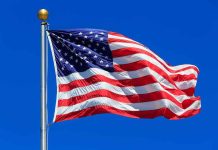
Harvard’s appointment of a drag queen professor stirs national debate, challenging the integrity of academic standards and conservative values.
Story Highlights
- Harvard hires drag queen LaWhore Vagistan as a visiting professor, sparking backlash.
- Courses on drag and queer culture face criticism for undermining traditional values.
- Former President Trump and conservative media criticize the university’s direction.
Harvard’s Controversial Appointment
In a move that has ignited a firestorm of controversy, Harvard University appointed Kareem Khubchandani, known in the drag world as LaWhore Vagistan, as a visiting associate professor for the 2025-26 academic year. The appointment, which integrates drag performance into the curriculum, has sparked significant backlash from conservative commentators and political figures. Critics argue that this decision reflects a decline in academic standards and an embrace of radical agendas.
Courses such as “RuPaulitics: Drag, Race, and Desire” are at the center of this debate. Critics view these offerings as indicative of a broader cultural shift within elite institutions, which they argue erodes traditional values. This sentiment is echoed by former President Trump, who has voiced concerns over the university’s direction, claiming it undermines the foundational principles of American education.
Political and Cultural Backlash
The appointment has fueled national discussions about diversity, equity, and inclusion (DEI) in higher education. Conservative groups, including prominent media outlets, have used the story to highlight perceived excesses of progressive policies in academia. Harvard, however, stands by its decision, citing the academic value of examining diverse cultural expressions through an academic lens.
For supporters, Khubchandani’s appointment represents a progressive step forward in recognizing and legitimizing queer studies. They argue that such inclusivity enriches educational discourse, preparing students for a diverse world. Meanwhile, conservative critics see it as further evidence of a “woke” overreach that threatens the quality and focus of traditional education.
Implications for Higher Education
The controversy surrounding Khubchandani’s appointment may have lasting implications for higher education. It raises questions about the role of universities in fostering diverse perspectives versus maintaining traditional academic rigor. Other institutions may either follow Harvard’s lead or, conversely, avoid similar appointments to steer clear of controversy.
This episode underscores a critical juncture in the ongoing culture wars, as elite universities grapple with balancing progressive inclusivity and conservative values. The outcome may influence not only academic hiring practices but also the broader dialogue on the role of higher education in society.


